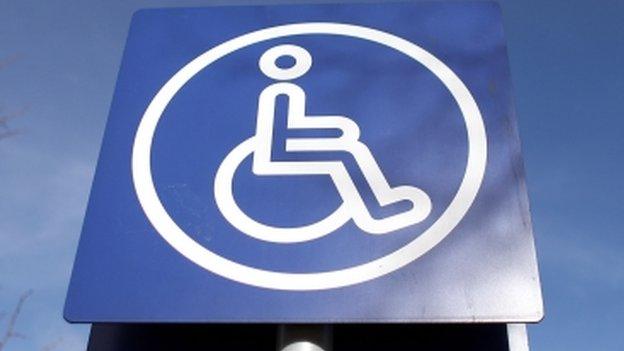7/7 survivor Daniel Biddle's anger over job hopes
- Published
Daniel Biddle uses a wheelchair after losing both of his legs in the attack
One of the worst-injured survivors of the 7/7 London bombings in 2005 has said his resulting disability has left him struggling to get work.
Daniel Biddle, 38, lost both legs, an eye, his spleen and is deaf in one ear after Mohammad Sidique Khan detonated a bomb on the Edgware Road tube train.
It was one of four suicide bombs to be set off in central London, killing 52 people and injuring hundreds more.
Mr Biddle said he wants to work but his disability puts employers off.
"There's such a lack of understanding about disability, there's so many myths and misconceptions about what being disabled actually is," he said.
"You hear the usual ones that it's more expensive to employ a disabled person and a disabled person has more time off sick and it's more insurance.
"The biggest one I've heard quite a lot is the fear to employ a disabled person because if it doesn't work out, organisations are frightened of letting them go in case they've got discrimination cases coming."
Mr Biddle, who lives in Abergavenny, Monmouthshire, had worked in London as a projects manager for a construction company and moved to Wales four years ago.
He ended up on the targeted Edgware Road tube train on 7 July because he was running late for work after almost calling in sick.
He was stood next to a sitting Khan as he set off the first of the four bombs that morning.
The then-26-year-old was flung through the doors and under the train.
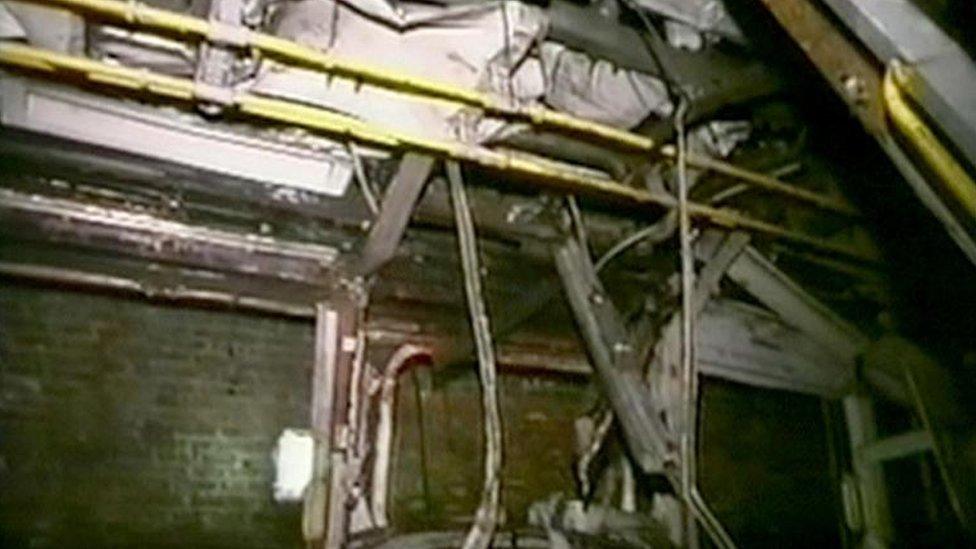
The remains of the inside of the tube train at Edgware Road which Daniel Biddle was a passenger on
He suffered three cardiac arrests as doctors battled to save him and was treated for a collapsed lung, multiple internal injuries and MRSA.
He also suffers with Post Traumatic Stress Disorder.
After spending a year in hospital - of which eight weeks were in a coma and another 12 in intensive care - the first few years were unaffected in terms of work.
"I found work quite easily but I very quickly understood it was because of what happened to me," Mr Biddle said.
"It was the notoriety of 7/7 seemed to be really good kudos for the employers.
"The minute I started work there would be a picture of me on their website saying most injured 7/7 survivor now working for X, Y and Z.
"So it became more about employing me because of what had happened rather than what I can do - and that was incredibly frustrating.
"It made me feel like being blown up and the survivor of a terrorist attack was going to take over my life and that's all I'd ever be.

There were four bombers involved in the 7/7 attacks
"It becomes soul-destroying because you're employed for what you look like and what you've gone through rather than what you can do.
"I lost both my legs in the blast, it didn't affect my capacity to do the work I was doing."
Mr Biddle said as the notoriety of 7/7 dwindled, so did the chances of employment.
He said many job applications were rejected due to the "high calibre" of candidates, but he added: "I'm a high calibre candidate but I'm disabled.
"I don't see why my disability discounts me from employment. I have the same aspirations as other people to be successful. I'm just in a wheelchair.
"I never believed it would be as prevalent as it is and it was quite a shock to realise how much of a hindrance this disability was going to be but certainly is and it's not just like that for me, it's like that for millions of people."
Mr Biddle also said his disability is why he struggles to land contracts for an access consultancy he set up to help employers be inclusive.
"Employers don't want to seem to pick up the mantle and try. There's so many talented disabled people with great qualifications that acquired disabilities later in life," he added.
"There's a massive talent pool that organisations are missing out on and I just don't understand why."
He said also government schemes were "setting people up to fail" as there is little work at the end.
Miranda Evans, policy and programmes manager at Disability Wales, said: "A lot more needs to be done to create inclusive work places.
"A lot of focus is put on the individual, up-skilling disabled people, giving disabled people confidence but we see very little focus on changing employers' attitudes and that's what we need more of."
The Welsh Government spokesperson said: "We want to remove the barriers faced by disabled people in Wales.
"We recently launched a consultation on our new Action on Disability framework, which was developed in partnership with disabled people, and includes recommended actions to be taken by government and wider society to address longstanding barriers to employment.
"We would encourage people to respond to the consultation and help us improve employment opportunities for all disabled people."
- Published16 October 2015
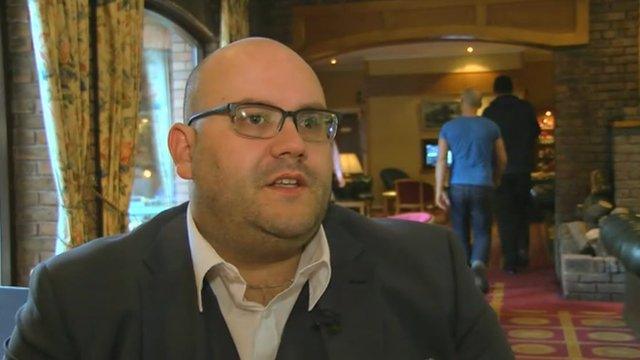
- Published7 July 2015
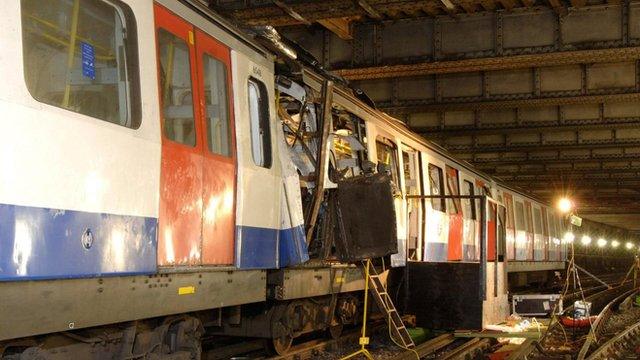
- Published23 February 2015
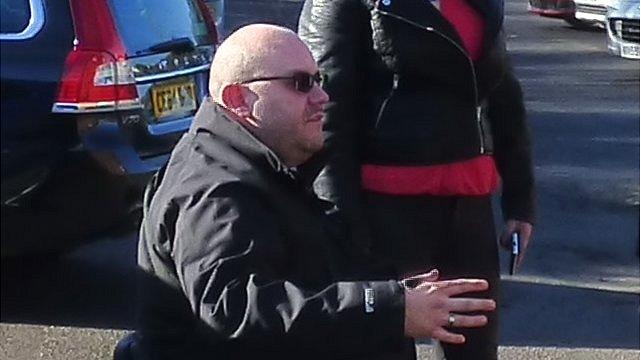
- Published8 March 2012
